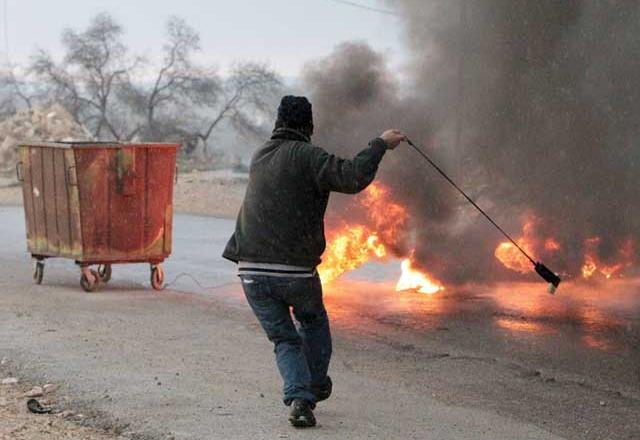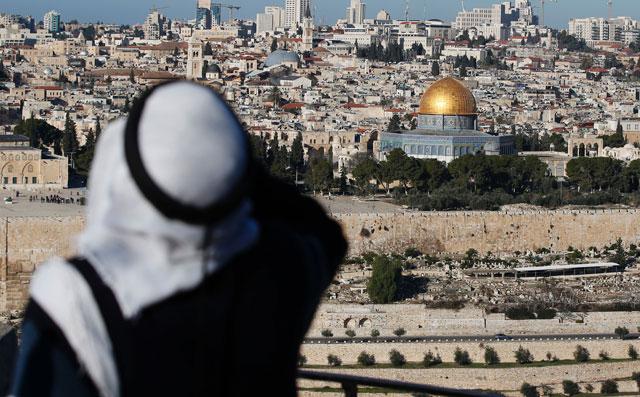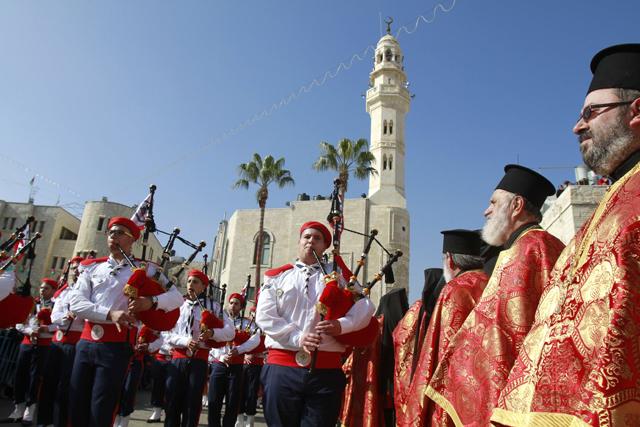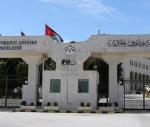Palestinian President Mahmoud Abbas has told a cheering audience in a fiery speech that “the Palestinian people won’t kneel” and won’t drop demands to establish a capital in East Jerusalem, The Associated Press reported.
US Secretary of State John Kerry is trying to forge an agreement between Abbas and Israeli Prime Minister Benjamin Netanyahu on the outlines of a peace deal, which also would address the fate of Jerusalem.
The Palestinians want a capital in East Jerusalem, one of the areas Israel occupied in 1967. Netanyahu has previously rejected a partition. Abbas and his aides fear that Kerry’s proposal, expected in the coming weeks, will only contain a vague reference to Palestinian “aspirations” in the city.
Abbas warned Saturday that “there will be no peace” without a Palestinian capital in East Jerusalem.
Meanwhile, Israel unveiled plans Friday for more than 1,800 new settler housing units in a move the Palestinians said was aimed at forcing Washington to abandon its Middle East peace drive, Agence France-Presse reported.
The announcement triggered concerns in Washington and at the United Nations, and came just days after Kerry wrapped up his latest visit to the region as part of tireless efforts to coax Israelis and the Palestinians towards an elusive peace deal.
The settlement move was widely believed to be an Israeli response to the release 10 days ago of a third batch of veteran Palestinian prisoners in accordance with commitments made to Washington last year, according AFP.
Just days before the 26 prisoners were freed, an Israeli official warned that the government would push ahead with plans for new settler housing units as it has done twice previously in a bid to appease hardliners in the right-wing coalition of Netanyahu.
Friday’s announcement will see the construction of 1,076 units in occupied East Jerusalem and 801 in the occupied West Bank, a spokesman for Israeli settlement watchdog Peace Now told AFP.
“The housing ministry announced the plans this morning,” said Lior Amihai.
“Many of the units will be built in existing settlements such as Efrat and Ariel in the West Bank, and Ramat Shlomo, Ramot and Pisgat Zeev in East Jerusalem.”
The ministry could not be immediately reached for confirmation.
US State Department spokeswoman Jen Psaki said the step was “not conducive to our efforts to move forward on peace”.
“We consider now and have always considered the settlements to be illegitimate,” she said.
UN Secretary General Ban Ki-moon said he was “alarmed” by Israel’s plans.
“Such activity is not only illegal but also an obstacle to peace,” he said.
Chief Palestinian negotiator Saeb Erekat said the move proved Israel wanted Kerry to stay away, and was another attempt by Netanyahu to “destroy” the peace process.
“The new settlement construction plan is a message from Netanyahu to Kerry not to come back to the region to continue his efforts in Israeli-Palestinian peace talks,” he told AFP.
“Every time Kerry has stepped up his efforts, returning to the region [for more talks], Netanyahu has stepped up his efforts to destroy the peace process,” he said.
“Netanyahu is determined to destroy the two-state solution.”
Israel ‘fooling’ Kerry
Erekat urged the EU in a separate statement to “sever all ties with the Israeli occupation, including companies and institutions involved with the colonisation of Palestine”.
The comments came after Dutch pension manager PGGM decided to divest from Israeli banks over their links with settlements in the West Bank.
Peace Now said the construction showed Israel was “fooling” Kerry and the Palestinians over its peace intentions.
“These actions are an indication that this government is not serious about the process, in fact they are fooling the Israeli public, the Palestinian leadership, the US secretary of state and the international community,” the watchdog said.
Israel freed the third of four batches of long-serving Palestinian prisoners on December 31, ahead of Kerry’s visit.
The two previous prisoner releases coincided directly with announcements for thousands of new settler homes, but Netanyahu delayed the latest announcement so as not to anger US officials, press reports said.
Kerry is reportedly due back in the region next week.
Direct negotiations began in late July with the aim of reaching a deal within nine months, but so far there has been little visible progress.
Kerry’s latest efforts focus on piecing together a framework to guide negotiations in the critical months ahead. He left empty-handed Monday, with US officials admitting there was “a lot of work that needs to happen, a lot of tough decisions”.
A poll published in Maariv newspaper said eight out of 10 Israelis did not believe Kerry’s efforts would succeed in reaching a peace deal. Another poll in the pro-government Israel HaYom newspaper showed 53 per cent did not even see him as an honest broker.
The international community views all Israeli construction on land seized during the 1967 war as illegal, and settlement activity is considered one of the most bitter issues of the Israeli-Palestinian conflict.
There are currently some 350,000 settlers living in the occupied West Bank, with another 200,000 in occupied East Jerusalem.
EU ‘deeply concerned’
The European Union’s foreign policy supremo said Saturday she was “deeply concerned” by what she said were “illegal” Israeli plans for more than 1,800 new settler housing units, AFP reported.
“I was deeply concerned to hear the latest announcement by the Israeli authorities to advance settlement plans once more,” Catherine Ashton said in a statement.
She added the settlements were “illegal under international law, constitute an obstacle to peace and threaten to make the two-state solution impossible”.
She reiterated her call on Israel to cease its settlement building and said current efforts at peace talks were a “unique opportunity” for both sides.
















